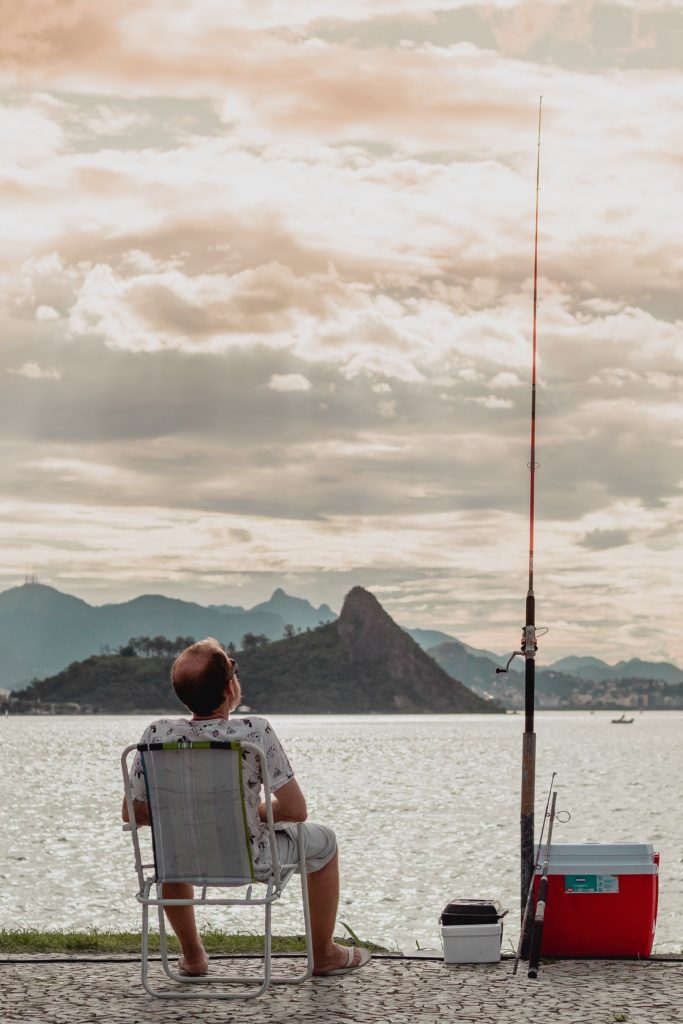In coordination with the California Department of Fish and Wildlife ending the fisheries closure, here is a guest blog from expert angler Kristian Rørbye of fishingkris.com.
Fishing is one of the few pastimes that is particularly well suited to vacations. It’s the ultimate way to unwind: fishing is soothing (or should be), it can be done with the whole family and from various locales, and it makes for exciting vacation stories.
Another benefit is that fishing is a sport that people of all skill levels can enjoy. Even if you’re not particularly good at it, you’ll be able to chuckle and have fun at the end of the day.
A day passed on the wide-open water with a fishing rod and reel in hand is absolutely a day well spent for many people. Others, on the other hand, find the idea of spending a day fishing a little dull and monotonous.
Fishing is one of the most popular outdoor leisure activities in the United States, with almost 50 million people venturing into our country’s lakes and streams each year to enjoy the excitement of catching something.
Here are five pointers to keep in mind when you first start fishing:
1. Come Prepared
Always make sure you’re well-prepared and equipped to purchase fishing equipment and a fishing license.
If you are a first-time traveler, finding out what equipment and licenses you’ll need before your trip may seem daunting, but don’t get bogged down in the details! Maintain a straightforward approach and try to keep it simple.
Choosing the appropriate equipment is crucial, but it may be an intimidating task. There is no quick fix for figuring out which gear is best for you, but there are a few things to keep in mind:
- Will you most likely fish from the rocks, beach, pier, boat, or another platform?
- Will you be fishing at the ocean, a river, a lake?
- What kind of fish are you looking for to catch?
Fishing does need some planning ahead of time. To ensure a smooth and pleasurable day on the trip, make sure you have all of the materials you’ll need ahead of time.
It’s OK to become enthusiastic if you see a fish chasing your bait…Just make sure you don’t stop spinning! Don’t alter your rhythm too much; this will serve to alert the fish to the idea that something isn’t quite correct.
Try your hand at fishing using robotic fishing lures. After 5-10 seconds, robotic swimming lures will come to a complete halt, waiting for the prey to be hooked. With super-realistic strokes and lighting spurs, you can capture more fish at any time during the day or night.
2. Be Aware of the Rules and Regulations
It’s critical to be aware of numerous fishing restrictions once you’ve been outfitted to seem like an A-grade angler. The most important limitations are the minimum permitted size and quantity of your catch. For recreational fishing, a license is required in some states.
Marine protected areas (MPAs) safeguard seas, oceans, estuaries, and, in the great lakes of the United States. These maritime regions can take many different forms, including wildlife refuges and research centers. MPAs are protected areas that restrict human activities for conservation, usually to conserve natural or enriching resources.
Some of the marine reserves allow fishing as long as no bait is gathered. On the other hand, other aquatic reserves restrict fishing in whole or part of the reserve to aid in the conservation of all forms of marine life in the region.
Orange County is lucky to have some great MPAs along its coastline, with Laguna Beach being the only place where fishing is prohibited. They appreciate being able to tell fishers about the recreational possibilities available in their regions and any water concerns that may affect them.
3. Do Your Research and Pack the Right Gear
It pays to do your homework if you want to be a successful angler. Those familiar with the sport will tell you that luring a catch involves planning, talent, research, dedication, and more.
Grasp as much fishing-related information as you can by reading, watching, and listening. If you have a limited amount of time, think about the optimum time to fish in your allocated area and the most incredible place to lure a catch.
Please make a note of locations where other fishers are attempting their luck when you arrive at your destination. Alternatively, ask around for some recommendations, as local knowledge is hard to match.
Here is a list of essential fishing equipment to bring with you.
- Fishing rod and reel
- Fishing lines with different strengths and weights. monofilament lines, which are very user-friendly and easy to knot.
- Assorted fish hooks. Sizes range from number 32 (smallest) to 19/0 (most significant)
- Live or artificial baits/fishing lures.
- Bobbers
- Swivels
- First aid kit. Accidents tend to happen its best to be well prepared
- Waterproof bag and rain gear
- Sunscreen and polarized sunglasses
- Tacklebox

If the only thing you’re at risk of contracting is a cold, it’s a good idea to have a backup plan. Plan a fishing location and select proper bait. These straightforward procedures will assist you in determining the optimal casting position for your reel and the best bait to utilize. You’ll have a more enjoyable time if you do some research before leaving the house.
Consult a local fishing guide for information on the region. Many may provide helpful information in the hopes of attracting fishers to their area.
4. Have a Plan
If the only thing you’re at risk of contracting is a cold, it’s a good idea to have a backup plan. Plan a fishing location and select proper bait. These straightforward procedures will assist you in determining the optimal casting position for your reel and the best bait to utilize. You’ll have a more enjoyable time if you do some research before leaving the house.
Consult a local fishing guide for information on the region. Many may provide helpful information in the hopes of attracting fishers to their area.
5. Invite a Friend to Join You and Embrace the Adventure
While being alone on the lake is a beautiful way to connect with your thoughts, sharing the experience with others is much better. Friendships are enhanced when they have a common interest. Fishing is a great way to meet new people, make memories, and have a few laughs.
The exhilaration of trying their luck every time they throw is addictive, according to many fishers. They like the element of surprise. True, no two fishing expeditions are ever the same.
To truly enjoy fishing, you must appreciate the unknown that awaits you on each trip.






